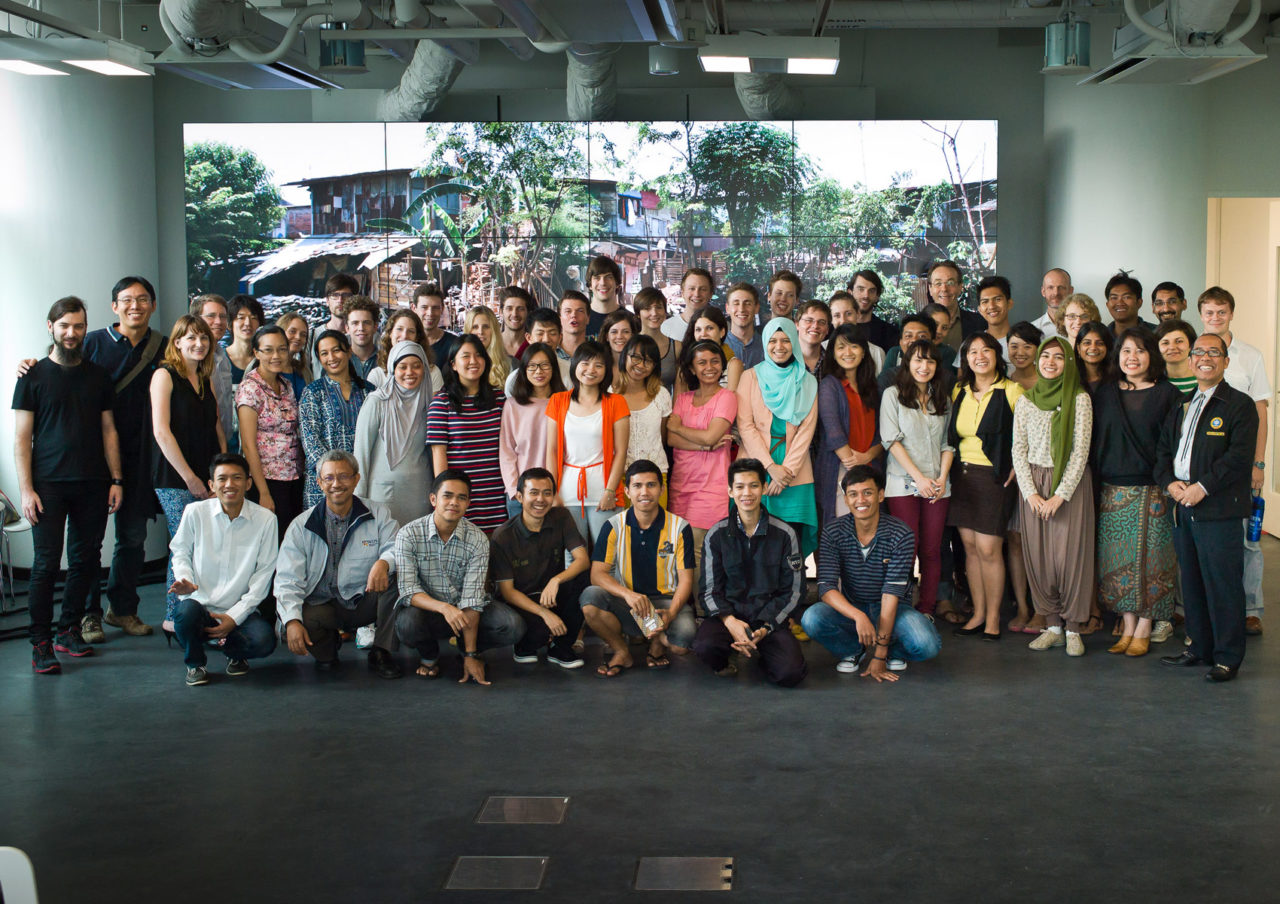
The researchers of the project Landscape Ecology demonstrate that a change of paradigm in river rehabilitation is possible, and provide a future vision that balances concerns over flooding, water quality, and ecology, with the realities of a rapidly growing Southeast Asian city.
Why was the project initiated?
Concerns over water scarcity, climate change, and environmental health risks have prompted some Asian cities to invest in river rehabilitation, but deciding on the end goals of rehabilitation is a complex under-taking. This project is a multi-disciplinary attempt at demonstrating that with current advancements in natural sciences and technology, a change of paradigm in river rehabilitation is possible, and providing a future vision that balances concerns over flooding, water quality, and ecology with the realities of a growing megacity. Combining know-how in landscape architecture, environmental planning, hydrology, hydraulics, and engineering, the project developed and refined its methodology by investigating the flood-prone and severely degraded Ciliwung River in metropolitan Jakarta, Indonesia.
What was the approach of the project to help address those problems?
The Ciliwung River was studied in its entirety, from the headwater down to the river corridor crossing the urban area of Jakarta, to generate solutions across a range of spatial scales, up to individual urban sites to capture the dynamics of the river and its surroundings.
Our methodology attempts to respond to the complexity of a river in a dense urban environment through an iterative approach, strongly based on conceptualization and mathematical modelling. Nested hydrologic, hydrodynamic, and water quality models provide outputs at catchment, corridor, and localized site scales. Advanced 3-D landscape modelling is used for procedural design and precise visualization of proposed changes and their effects, as predicted by the mathematical models and suggested by expected social impacts.
Exploring, though to a limited extent, the principles of participatory planning and design methods allowed the project to obtain critical stakeholder feedback in shaping a socially acceptable approach. The Ciliwung Rvier Project methodological framework and its results demonstrated that a paradigmatic change in river rehabilitation is possible, and providing future scenarios that balance concerns over flooding, water quality, and ecology, with the realities of a rapidly growing megacity is not a utopia.
Researchers for module VII are Prof. Christophe Girot, Prof. Dr Paolo Burlando, Prof. Dr Adrienne Grêt-Regamey, Prof. Dr. Jörg Rekittke (Professor NUS), Prof. Dr. Liong Shie Yui (Professor NUS), Dr. Senthil Gurusamy, Dr. Rita Padawangi, Diogo da Costa, Ervine Lin, Yazid Ninsalam, Michaela Prescott, Federica Remondi, Kashif Shaad, and Derek Vollmer.
Image: Design Research Workshop between ETH Zurich, University of Indonesia, and National University Singapore at the FCL Create Centre in Singapore.